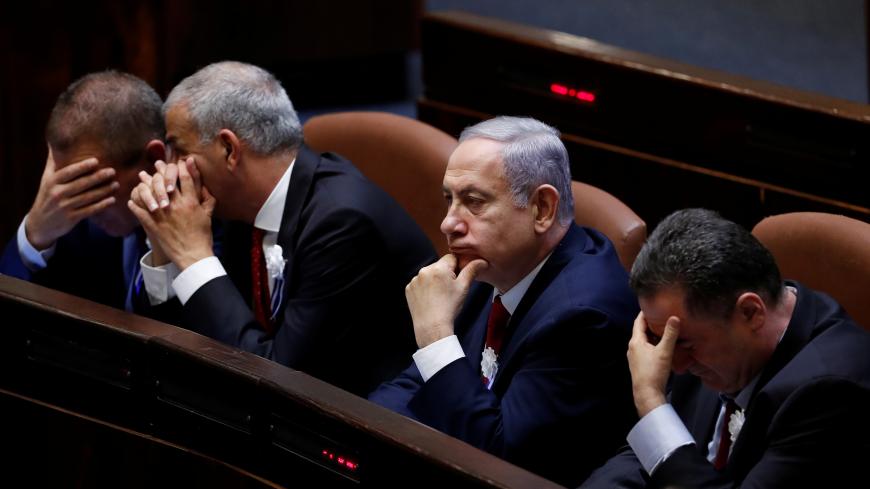The Israeli prime minister entering the Knesset on the day members are sworn in has traditionally been a festive occasion. On the afternoon of Oct. 3, the current officeholder arrived and entered almost without notice. Prime Minister Benjamin Netanyahu entered through a side door, and once inside, he immediately disappeared into the room reserved for his Likud faction. An air of uncertainty surrounded him.
Just a few hours earlier, Netanyahu had met behind closed doors with Avigdor Liberman, chairman of Yisrael Beitenu, after a long period during which the two men did not communicate. Netanyahu had initiated the meeting, and in the end, all he got from it was reassurance that Liberman would not be the one to save him. Liberman will only join a secular unity government. Refusing to toss a lifeline, Liberman continues in his role as Netanyahu's political executioner. Further evidence of the meeting’s failure could be seen in Netanyahu’s almost desperate attempts to catch Liberman’s eye in the audience during his speech to the Knesset, especially when he spoke about the sensitive security situation, which he said demands unity. Liberman made a show of avoiding direct eye contact.



